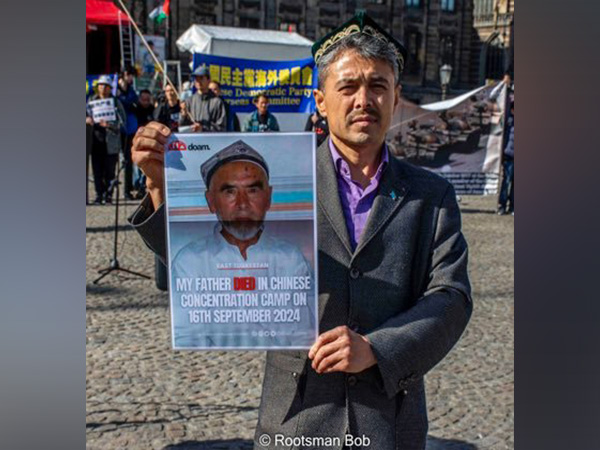
UN chief Antonio Guterres calls for structural reforms in global body
May 13, 2025
New York [US], May 13 : United Nations Secretary-General Antonio Guterres on Monday called for wide-ranging structural reforms to enhance the global body's effectiveness. He outlined wide-ranging reform plans to revamp how the UN system operates, including cutting costs, relocating services from high-cost duty stations, centralizing information technology and support services, expanding automation and digital platforms, noting that some of these changes will be "painful" for the UN family.
In the briefing on the UN80 Initiative in New York on Monday, Guterres said, "As indicated in my letter of 11 March, the UN80 Initiative is structured around three key workstreams: First, we are striving to rapidly identify efficiencies and improvements under current arrangements. Second, we are reviewing the implementation of all mandates given to us by Member States. And third, we are undertaking consideration of the need for structural changes and programme realignment across the UN system. Under the first workstream on efficiencies and improvements, Under-Secretary-General Catherine Pollard is leading a Working Group for the Secretariat that is developing a management strategy to design a new business model for the Organization."
"The Working Group is focused on developing cost-reduction and efficiency-enhancement proposals in management and operations across the UN Secretariat. It is reviewing administrative functions to identify redundancies, streamline processes, and design integrated solutions -- with cost-benefit analyses and clear implementation road maps. Priority areas include: Functional and structural consolidation; workforce streamlining; relocating services from high-cost duty stations; centralizing information technology and support services, and expanding automation and digital platforms," he added.
He emphasised that the immediate focus of the Working Group will be on management and operational areas while the rest of the Secretariat will be expected to contribute towards the efficiency agenda.
He stated, "For example, all Secretariat entities in New York and Geneva have been asked to review their functions to determine if any can be performed from existing, lower-cost locations, or may otherwise be reduced or abolished. This especially pertains to those functions that do not directly support intergovernmental bodies in New York and Geneva."
"With respect to the broader UN system, in April, the High-Level Committee on Management identified potential system-wide efficiency measures in areas such as human resources management, supply chain management and information and communications technologies. Concrete proposals are now being developed, including identifying services that system organizations can provide quicker, at a lower price or through more competitive contracts," he added.
Antonio Guterres said that he expects meaningful reductions in the overall budget level. He noted that they have already seen considerable savings in New York by terminating the lease of one building and moving staff into other existing premises and they expect to close two more buildings when their leases expire in 2027 with considerable savings.
Mentioning about the possibilities on how they can reduce budget, he said, "For example, let me describe what is under consideration in the peace and security cluster. First, resetting DPPA and DPO, merging units, eliminating functional and structural duplications, getting rid of functions that are also exercised in other parts of the system. I believe we'll be able to eliminate 20 per cent of the posts of the two departments. Second, a similar exercise of streamlining the civilian part of peacekeeping."
"Third, The consolidation within OCT of all counter-terrorism activities spread in the system. Fourth, a review of the present structure of regional offices, Special Representatives and Envoys aiming at a consolidation of the system, with increased functionality and meaningful savings. The level of reduction of posts that I have outlined for DPPA and DPO must be seen as a reference for the wider UN80 exercise, naturally taking into account the specificities of each area of work. There might be immediate, one-off costs involved in relocating staff and providing potential termination packages. But, by moving posts from high-cost locations, we can reduce our commercial footprint in those cities and reduce our post and non-post costs," he added.
He said that the efficiencies required cannot be achieved unless they focus on the programmatic areas of work. He noted that dedicated outreach with the wider UN system is now underway, and will take profit of the work of the established clusters.
He further said, "Additional proposals resulting from the other workstreams will be submitted to Member States for consideration as appropriate. Many changes will require the approval by the General Assembly this year and next. I will consult closely and regularly with Member States on progress, seeking guidance on the way forward, and presenting concrete proposals for discussion and decision-making when appropriate. We know that some of these changes will be painful for our UN family. Staff and their representatives are being consulted and heard. Our concern is to be humane and professional in dealing with any aspect of the required restructuring."
.


























